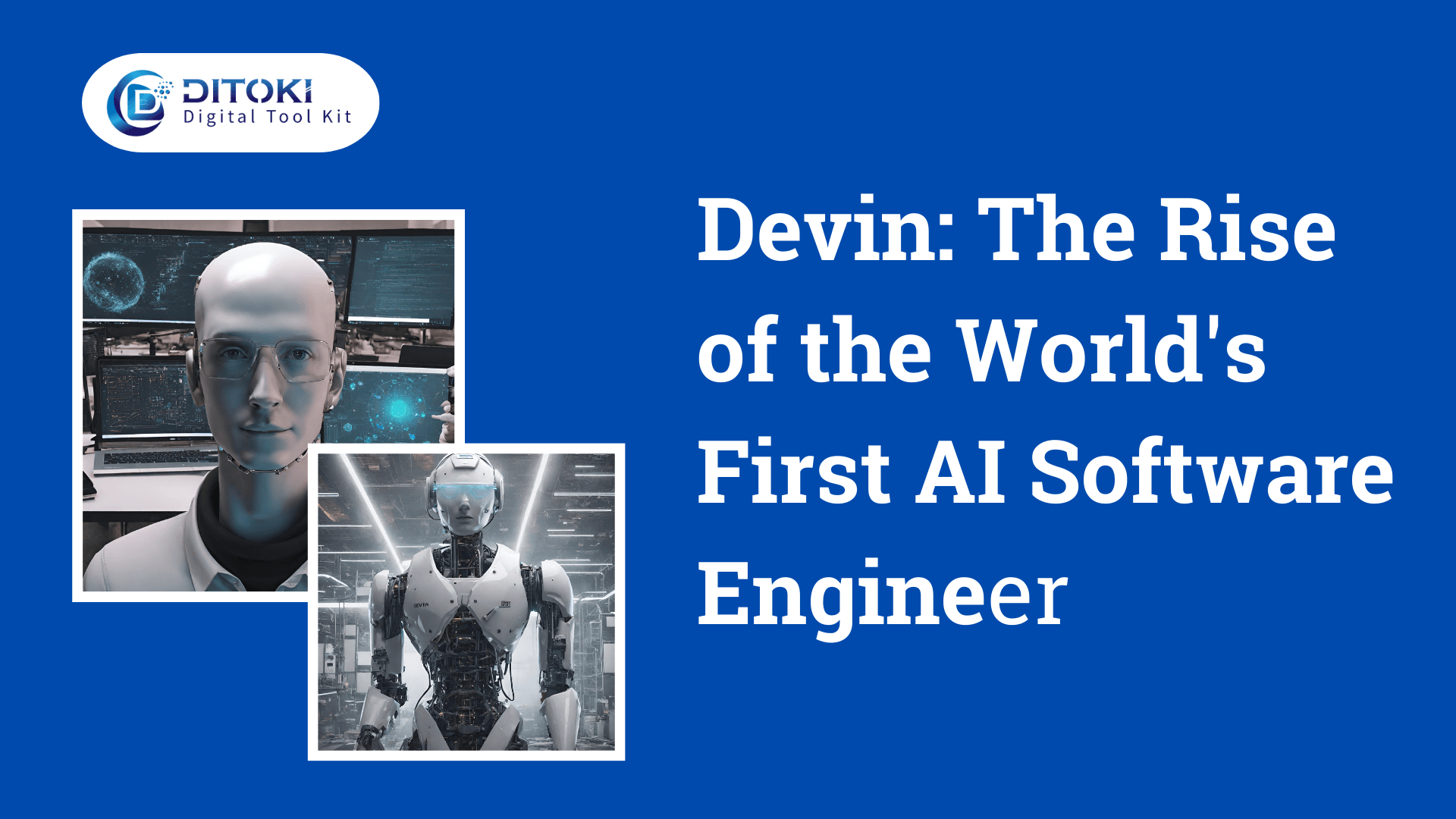The world of software engineering is on the cusp of a revolution. At the forefront of this change is Devin, a groundbreaking AI program hailed as the world's first AI software engineer. This isn't science fiction - Devin is a reality, and its impact on the industry is already being felt.
But what exactly is Devin, and how is it changing the game?
From Brainstorm to Reality: The Birth of Devin
The story of Devin starts with Cognition, a company dedicated to pushing the boundaries of AI. Their vision? To create an AI that wouldn't replace human software engineers, but rather work alongside them as a powerful collaborator. After years of research and development, Cognition unveiled Devin in 2024. This marked a pivotal moment in AI history, raising both excitement and questions within the software engineering community.
Beyond Automation: How Devin Augments Human Engineers
Unlike a traditional coding robot, Devin isn't designed to write code from scratch. Instead, it acts as a supercharged assistant, boosting the capabilities of human engineers. Here's how:
- Eagle-Eyed Code Review: Devin meticulously examines code, pinpointing potential bugs, syntax errors, and logic flaws. This frees up valuable time for engineers to focus on more complex problem-solving.
- Code Whisperer: Devin analyzes existing code and suggests improvements based on best practices and efficiency. It can even recommend alternative algorithms and data structures for optimal performance.
- Test Case Titan: Forget tedious manual testing. Devin generates comprehensive test cases to rigorously evaluate software functionality, reducing the risk of bugs slipping through the cracks.
- API & Documentation Doctor: Devin analyzes existing APIs and documentation, suggesting improvements for clarity and user-friendliness. It can even generate basic documentation for newly developed code.
A Force Multiplier: The Impact of Devin on Software Engineering
The introduction of Devin has sparked a wave of discussion about its potential impact. Here are some key areas where Devin is making a difference:
- Soaring Productivity: Repetitive tasks like code review and testing are automated, freeing up engineers to focus on innovation and problem-solving. This can lead to a significant increase in overall productivity.
- Rock-Solid Software Quality: Devin's meticulous analysis and bug detection capabilities contribute to a higher standard of software quality. Reduced bugs, crashes, and security vulnerabilities translate to a better user experience.
- Democratizing Development: Devin acts as a valuable assistant for both experienced and novice engineers. Its ability to suggest improvements and optimize code empowers junior engineers and lowers the barrier to entry for new talent.
- Collaboration is Key: While powerful, Devin isn't designed to replace human engineers. Its true strength lies in collaboration. Human expertise coupled with AI assistance leads to a robust and efficient software development process.
Challenges and the Road Ahead
As with any groundbreaking technology, there are challenges to address:
- Ethical Considerations: Bias in training data can lead to biased AI outputs. Ensuring fairness and ethical coding practices is critical when working with AI collaborators.
- Job Displacement Concerns: Some might fear that AI will replace software engineers altogether. However, Devin is designed to augment, not replace, human expertise.
- Lifelong Learning: The software development landscape is constantly evolving. Devin's ability to learn and adapt to new technologies and frameworks will be crucial for its continued success.
The Future of AI in Software Engineering: A Collaborative Symphony
Devin represents a significant leap forward in the integration of AI into software development. As AI technology continues to evolve, we can expect to see further advancements in human-AI collaboration. Here are some potential future directions:
- Domain-Specific AI Assistants: Imagine AI engineers like Devin specializing in specific programming languages, frameworks, or domains, offering even more tailored assistance.
- AI-Powered Design and Development: AI might play a larger role in the initial stages of software development, assisting with design, architecture planning, and code generation.
- Continuous Learning and Improvement: AI assistants like Devin will likely be designed to continuously learn from experience and adapt to new technologies and best practices, becoming even more valuable collaborators.
Conclusion
Devin, the world's first AI software engineer, marks a new era in human-AI collaboration within the software development field. Its capabilities hold immense potential to improve productivity, software quality, and accessibility within the industry. As Devin continues to develop and learn, the future of software engineering promises a collaborative symphony, with humans and AI working together to create innovative and impactful software solutions.
